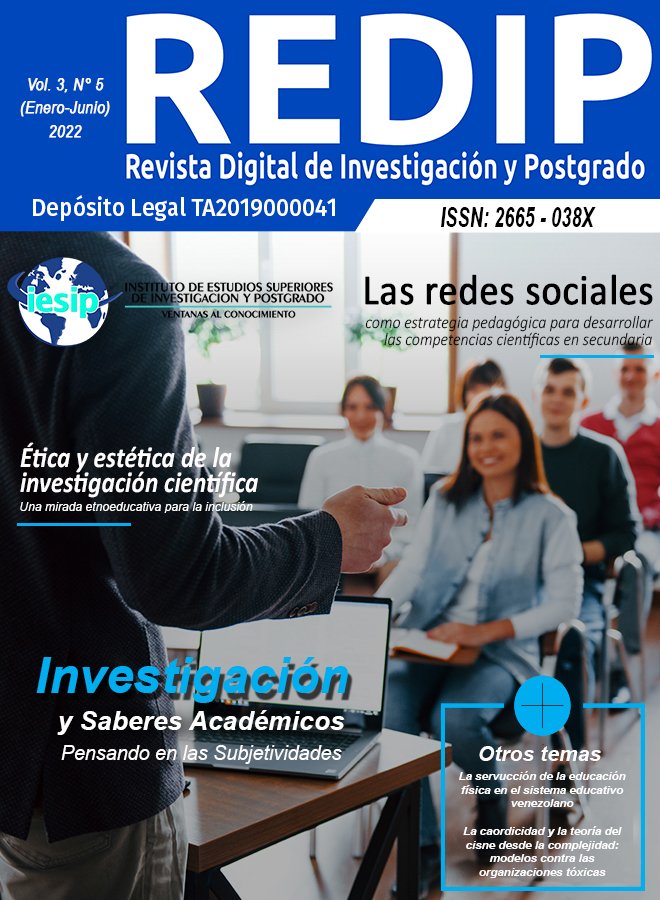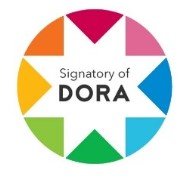A case study: About the evaluation of learning in educational institutions
"Five questions to improve"
DOI:
https://doi.org/10.59654/2xnekm62Keywords:
Evaluation, knowledge, memory, educational institutionsAbstract
The evaluation needs rigorous changes, from the way it is defined, to the way it is done, for this, a case study was carried out in the Olivos District Educational Institution (IED) of the city of Santa Marta, Colombia, for this purpose A questionnaire was applied to 22 teachers and 2 teacher directors with five open questions about: what is evaluation? What is evaluated? Why is it evaluated? How is it evaluated? And the final considerations of how it is believed that the evaluation model of said Institution should be? The percentages were calculated according to the frequencies of the responses obtained, reflecting on the need to review some concepts about the evaluation of learning in FDI. 66.66% of the respondents considered that the evaluation is a measurement test of what a concept has been grasped and 20.83% stated: the evaluation as the evaluation of knowledge, commitment and learning of a student; The first four questions maintain a similar behavior in the way the respondents think about the evaluation: "measurement of the cognitive in a memory, quantifiable and sanctioning way", on the contrary, in the last question the teachers recognize that the current evaluation model does not it adjusts to the context, needs, or realities of the community served.
Downloads
References
Álvarez, J. M. (2011). Evaluar para conocer, examinar para excluir. Colección: Pedagogía. Razones y propuestas educativas. Ediciones Morata S.L.
Arias, F. (2012). El proyecto de investigación: Introducción a la metodología científica. (6a ed.). Episteme.
Arribas, J. (2017). La evaluación de los aprendizajes. Problemas y soluciones. Profesorado. Revista de Currículum y Formación de Profesorado [en línea] 2017, 21 (Septiembre-Diciembre). https://www.redalyc.org/articulo.oa?id=56754639020
Arzola, D. (2017). Evaluación, pruebas estandarizadas y procesos formativos: experiencias en es-cuelas secundarias del norte de México. Educación, 26(50), 28-46. http://revistas.pucp.edu.pe/index.php/educacion/article/view/16562
Birembaum, M. (2007). Assessment and instruction preferences and their relationship with test anxiety and learning strategies. Higher Education, 32 (2), 749-768.
Bonil, J. y Soler, M. (2012). Educar als museus i centres de ciència. En J. Bonil, R. Gómez, L. Pejó y P. Viladot. (Eds.). Som Educació. Enseyar i aprenre als museus i centres de ciencia: una proposta de model didàctic (pp. 13-35). Museu de Ciències Naturals.
Celin, M. (enero-junio de 2012). Evaluar desde el paradigma de la complejidad: Un reto para la educación del nuevo milenio. Escenarios, 10(1). https://dialnet.unirioja.es/descarga/articulo/4496089.pdf
Coll, C. y Onrubia, J. (1999). Evaluación de los aprendizajes y atención a la diversidad. Psicología de la instrucción: La enseñanza y el aprendizaje en la educación secundaria. Horsori/ICE
Hernández, M. y Mola, M. (2016). Prácticas evaluativas del aprendizaje en la Universidad Deportiva del Sur de Venezuela. Revista Cubana de Educación Superior, 35(2), 4-15. http://scielo.sld.cu/scielo.php?script=sci_arttext&pid=S0257-43142016000200001&lng=es&tlng=es.
Hernández, R., Fernández, C. y Baptista, P. (2014). Metodología de la investigación. 6a. ed. McGraw-Hill.
Lozano, C. (2018). Debates en Evaluación y Currículum/Congreso Internacional de Educación. Evaluación 2018 /Año 4, No. 4/Septiembre de 2018 a Agosto de 2019. ISSN: 2448 – 6574
Ministerio de Educación Nacional (2010). Altablero No. 38, enero-marzo 2010. https://www.oei.es/historico/co179.htm
Morales, R. (2018). La planeación de la enseñanza-aprendizaje, competencia que fortalece el perfil docente. RIDE. Revista Iberoamericana para la Investigación y el Desarrollo Educativo, 8(16), 311-334. Recuperado de https://doi.org/10.23913/ride.v8i16.343
Núñez, J. (2010). Evaluación del alumno. Educación Médica, 13(Supl. 1), S57-S60. http://scielo.isciii.es/scielo.php?script=sci_arttext&pid=S1575-18132010000500011&lng=es&tlng=es.
Said-Hung, E., Gratacós, G. y Cobos, J. (2017). Factores que influyen en la elección de las carreras de pedagogía en Colombia. Educação e Pesquisa, 43(1), 31-48. https://doi.org/10.1590/s1517-9702201701160978
Sánchez, M. (2018). La evaluación del aprendizaje de los estudiantes: ¿es realmente tan complicada? Revista digital universitaria, 21(4). https://www.revista.unam.mx/2018v19n6/evaluacion-del-aprendizaje-de-los-estudiantes/
Tébar, L. (2010). La evaluación de aprendizajes y competencias en el aula. Fides et Ratio – Revista de Difusión cultural y científica. 4(4), 86-98. Universidad La Salle. Bolivia. http://www.scielo.org.bo/scielo.php?script=sci_arttext&pid=S2071-081X2010000100009&lng=es&tlng=es.
Tobón, S. (2017). Conceptual analysis of the socioformation according to the knowledge society. Knowledge Society and Quality of Life (KSQL),1(1), 9-35. https://goo.gl/aJeSvw
UNESCO. (2017). Evaluación del aprendizaje en la UNESCO: garantía de un aprendizaje efectivo y relevante para todas las personas: Garantía de un aprendizaje efectivo y relevante para todas las personas. Educación 2030. https://unesdoc.unesco.org/ark:/48223/pf0000260325_spa?posInSet=1&queryId=f94b156e-8229-4d6f-8ec4-149e8339ad59
Vera, J., Bueno, G., Calderón, N., y Medina, F. (2018). Modelo de autoevaluación y heteroevaluación de la práctica docente en Escuelas Normales. Educação e Pesquisa, 44, e170360. https://doi.org/10.1590/s1678-4
Downloads
Published
Issue
Section
License
Copyright (c) 2021 Revista Digital de Investigación y Postgrado

This work is licensed under a Creative Commons Attribution-NonCommercial-ShareAlike 4.0 International License.
Esta licencia permite a los reutilizadores distribuir, remezclar, adaptar y desarrollar el material en cualquier medio o formato únicamente con fines no comerciales, y solo siempre que se atribuya al creador. Si remezclas, adaptas o construyes sobre el material, debes licenciar el material modificado bajo términos idénticos. CC BY-NC-SA incluye los siguientes elementos:
![]() POR: se debe dar crédito al creador.
POR: se debe dar crédito al creador.![]() NC: Sólo se permiten usos no comerciales de la obra.
NC: Sólo se permiten usos no comerciales de la obra.![]() SA: Las adaptaciones deben compartirse en los mismos términos.
SA: Las adaptaciones deben compartirse en los mismos términos.











